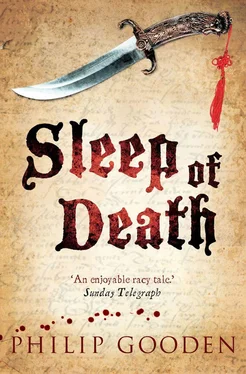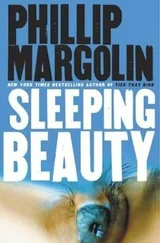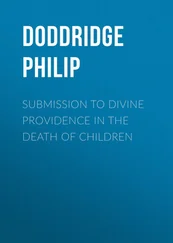Philip Gooden - Sleep of Death
Здесь есть возможность читать онлайн «Philip Gooden - Sleep of Death» весь текст электронной книги совершенно бесплатно (целиком полную версию без сокращений). В некоторых случаях можно слушать аудио, скачать через торрент в формате fb2 и присутствует краткое содержание. Год выпуска: 0101, ISBN: 0101, Издательство: Constable & Robinson, Жанр: Исторический детектив, на английском языке. Описание произведения, (предисловие) а так же отзывы посетителей доступны на портале библиотеки ЛибКат.
- Название:Sleep of Death
- Автор:
- Издательство:Constable & Robinson
- Жанр:
- Год:0101
- ISBN:9781472104311
- Рейтинг книги:5 / 5. Голосов: 1
-
Избранное:Добавить в избранное
- Отзывы:
-
Ваша оценка:
- 100
- 1
- 2
- 3
- 4
- 5
Sleep of Death: краткое содержание, описание и аннотация
Предлагаем к чтению аннотацию, описание, краткое содержание или предисловие (зависит от того, что написал сам автор книги «Sleep of Death»). Если вы не нашли необходимую информацию о книге — напишите в комментариях, мы постараемся отыскать её.
Sleep of Death — читать онлайн бесплатно полную книгу (весь текст) целиком
Ниже представлен текст книги, разбитый по страницам. Система сохранения места последней прочитанной страницы, позволяет с удобством читать онлайн бесплатно книгу «Sleep of Death», без необходимости каждый раз заново искать на чём Вы остановились. Поставьте закладку, и сможете в любой момент перейти на страницу, на которой закончили чтение.
Интервал:
Закладка:
fourthly : Had Sir Thomas really been away from the house when his brother died? Had he saddled up and ridden off a day or two earlier, claiming urgent business in Dover, only to return rather before the morning which followed the discovery of the body? Perhaps he had remained all the time in London. What did it mean that he was ‘near bankrout’? If this was true, then presumably he had been saved by an advantageous marriage.
What counted chiefly with me was not, however, the various pointers that I had picked up in conversation with Francis. What convinced me that there was something wrong was a visit to the hidden garden, made in company with the dog-like Jacob.
The door was no longer locked since the old master’s passing. It had secured his private orchard, and now he was dead there seemed no reason to keep it closed. On my second morning in the house I asked Jacob to show me where Sir William had been found. We traversed the larger garden and approached a wall that was pierced in the centre by the half-open oak door. An autumn wind was beginning to strip the trees. The grasses around the garden paths lay lank and untended. The door creaked when I pushed at it, with Jacob at my shoulder. Inside was a thick plantation of fruit trees. A few apples and pears lay mushed underfoot. A vine scaled the inner, south-facing wall behind us. The watermen’s cries, the creak of the nearer boats and the slop of water against the bank floated over the riverside wall.
‘Where did it happen, Jacob? Where was Sir William found?’
Jacob gestured, and lead the way towards the middle of the little orchard, ducking and weaving with suprising agility to avoid the low branches. Beaten-down areas of grass marked old routes among the trees. We came to a small open area where two apple trees faced each other. On the far side were a scattering of plums. Jacob stopped and pointed to the apple trees. They were old and gnarled. Their upper branches ran riot with each other but the lower ones had been pruned or altogether cut away. This was where Sir William’s body had hung suspended in his hammock. Although the hammock had gone, probably taken away with the body, I could see, at about five feet above the ground on each tree, rings around the bark which were discoloured or abraded. I crouched slightly to avoid the dangling leaves and the apples. I ran my fingers round the indentations made by the hammock ropes; as one would expect, they were deeper on the sides facing away from the clearing, where the pull of a man’s weight on the hammock supports would be greatest. As I was leaning forward something tapped me on the shoulder. I thought it was Jacob and looked around, only to see him grinning. Another windfall apple thumped on my outstretched arm. I retrieved it from the wet grass and bit into it. It was, if I am not mistaken, a Peasegood Nonesuch. I straightened up and stood flanked by the pair of trees, slowly chewing the fruit of one tree and pondering the fate of the man who had died suspended between two of them. Jacob, meanwhile, remained gazing at me with the patience and good nature of a dog which halts when his master halts but is ready to spring up the instant that he shows signs of moving.
Perhaps I owe my discovery to the Peasegood Nonesuch. It is a large and handsome variety of apple, and demands much eating. I stood there staring at, but not really seeing, the yellow and curling foliage of the orchard. Sir William Eliot had died here. Let us, I said, addressing myself in the plural, assume that he did not die naturally. Someone else had paid his fare to Charon for crossing the river Lethe into the underworld. Everything I’d heard indicated he was alone when he died. Janet had seen him crossing the outer garden and going into his private area. No one else possessed a key to the door. It was his custom of an afternoon to rest in his orchard, to think in this place — to sleep, perhaps to dream. This was his garden, his Eden. Yet Eden had Eve, as well as Adam. Did Lady Alice ever come here? Not on that day, certainly, otherwise she wouldn’t have been so anxious over his whereabouts. And Janet’s report had not mentioned Sir William’s being accompanied by any other member of the household. No, he was alone when he opened the door and relocked it behind him, I was as sure of that as if I had seen him go through the door with my own eyes.
I pursued my thoughts. Eden was home to our first parents. Eden was also the serpent’s lodging place. The snake in the grass. The serpent — or rather the serpent’s malice — was not native to Eden. He crept in from the outside. I wondered, had anyone crept into the garden after Sir William had entered it? Through the door? That was locked, and Sir William had the single key. The key had fallen from his body as it was being carried inside, Francis had told me. Keys may be copied, though. Leave that thought for now. Apply the philosophic principle of Occam’s razor, that entities are not to be multiplied beyond necessity. Assume that there was no other key. Then had someone come over the wall? But the walls were high. A ladder had been necessary when Francis had been ordered to get into the inner garden. An inner wall divided the two gardens belonging to the Eliots, while three exterior walls protected Sir William when he was shut up in his private garden. One separated him from his neighbours on the west side, one adjoined Mixen Lane in the east and the final wall opposed the river. Beneath this wall was a slick stretch of shoreline, exposed at low tide.
As I swallowed the last fragments of the Peasegood Nonesuch, I tried to put myself in the position of someone wishing to harm — even to kill — Sir William Eliot. I fashioned another self. I became a murderer; a simple transformation for a player.
Leave aside for the moment the question of how I gained entry into the hidden garden. Leave aside too the question of where I came from, whether from the public lane or the neighbours’ grounds or even from the outer garden of the house. (I discounted the river approach, as too difficult.) The point was, it could be done. Though the walls were high they were not insurmountable. I could have used a ladder, even if an accomplice to place it and then remove it while I was about my dirty business in the garden, would perhaps be necessary. I might have used a simple rope and hook to catch on the wall-top — this would do away with the accomplice. But, whichever method I employed, at what time would I make my entry? Knowing that Sir William habitually repaired to his orchard on fine afternoons in spring and summer, would I wait until I was sure that he was there, and then nip up the wall, drop down the other side and search the orchard until I stumbled across him swinging in his hammock? No. There were too many risks with this clumsy procedure. Sir William might not be safely asleep. He might be wandering among his trees even as I levered myself over his boundary wall. He might see me as I descended or as I threaded my way among his fruit trees.
No, were I the murderer, I would take my place before Sir William had entered his garden. I would be like those spectators who come early to ensure the best positions in the playhouse. I would wait until my mark was fixed and settled in sleep, and only then would I make my move. I would crouch in a corner of the wall like a cur. I would rise from the grass, as the false serpent does.
Or I would fall from above, like rotten fruit.
And now I remembered what little Francis had said to me, about what he felt after he had climbed into the garden but before he had found Sir William dead in his hammock — ‘Someone was looking over my shoulder, sir. Nothing there save the heads of the trees. My shoulder still icy. Their eyes were up. And Sir William he was not up, not up anywhere. He was lying down.’
Читать дальшеИнтервал:
Закладка:
Похожие книги на «Sleep of Death»
Представляем Вашему вниманию похожие книги на «Sleep of Death» списком для выбора. Мы отобрали схожую по названию и смыслу литературу в надежде предоставить читателям больше вариантов отыскать новые, интересные, ещё непрочитанные произведения.
Обсуждение, отзывы о книге «Sleep of Death» и просто собственные мнения читателей. Оставьте ваши комментарии, напишите, что Вы думаете о произведении, его смысле или главных героях. Укажите что конкретно понравилось, а что нет, и почему Вы так считаете.












